Robert Frost
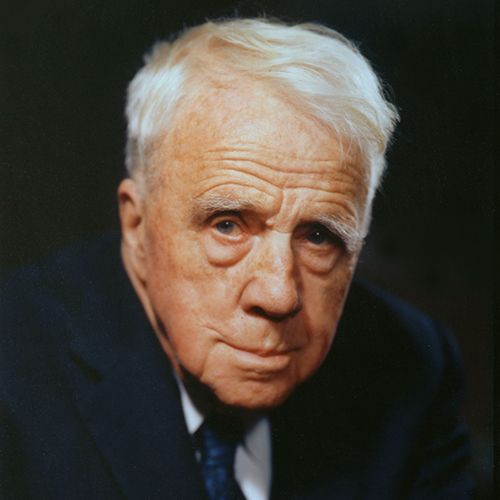
(1874-1963)

Who Was Robert Frost?
Robert Frost was an American poet and winner of four Pulitzer Prizes. Famous works include “Fire and Ice,” “Mending Wall,” “Birches,” “Out Out,” “Nothing Gold Can Stay” and “Home Burial.” His 1916 poem, "The Road Not Taken," is often read at graduation ceremonies across the United States. As a special guest at President John F. Kennedy ’s inauguration, Frost became a poetic force and the unofficial "poet laureate" of the United States.
Frost spent his first 40 years as an unknown. He exploded on the scene after returning from England at the beginning of World War I . He died of complications from prostate surgery on January 29, 1963.
Early Years
Frost was born on March 26, 1874, in San Francisco, California. He spent the first 11 years of his life there, until his journalist father, William Prescott Frost Jr., died of tuberculosis.
Following his father's passing, Frost moved with his mother and sister, Jeanie, to the town of Lawrence, Massachusetts. They moved in with his grandparents, and Frost attended Lawrence High School.
After high school, Frost attended Dartmouth College for several months, returning home to work a slew of unfulfilling jobs.
Beginning in 1897, Frost attended Harvard University but had to drop out after two years due to health concerns. He returned to Lawrence to join his wife.
In 1900, Frost moved with his wife and children to a farm in New Hampshire — property that Frost's grandfather had purchased for them—and they attempted to make a life on it for the next 12 years. Though it was a fruitful time for Frost's writing, it was a difficult period in his personal life and followed the deaths of two of his young children.
During that time, Frost and Elinor attempted several endeavors, including poultry farming, all of which were fairly unsuccessful.
Despite such challenges, it was during this time that Frost acclimated himself to rural life. In fact, he grew to depict it quite well, and began setting many of his poems in the countryside.
Frost met his future love and wife, Elinor White, when they were both attending Lawrence High School. She was his co-valedictorian when they graduated in 1892.
In 1894, Frost proposed to White, who was attending St. Lawrence University , but she turned him down because she first wanted to finish school. Frost then decided to leave on a trip to Virginia, and when he returned, he proposed again. By then, White had graduated from college, and she accepted. They married on December 19, 1895.
White died in 1938. Diagnosed with cancer in 1937 and having undergone surgery, she also had had a long history of heart trouble, to which she ultimately succumbed.
Frost and White had six children together. Their first child, Elliot, was born in 1896. Daughter Lesley was born in 1899.
Elliot died of cholera in 1900. After his death, Elinor gave birth to four more children: son Carol (1902), who would commit suicide in 1940; Irma (1903), who later developed mental illness; Marjorie (1905), who died in her late 20s after giving birth; and Elinor (1907), who died just weeks after she was born.
DOWNLOAD BIOGRAPHY'S ROBERT FROST FACT CARD
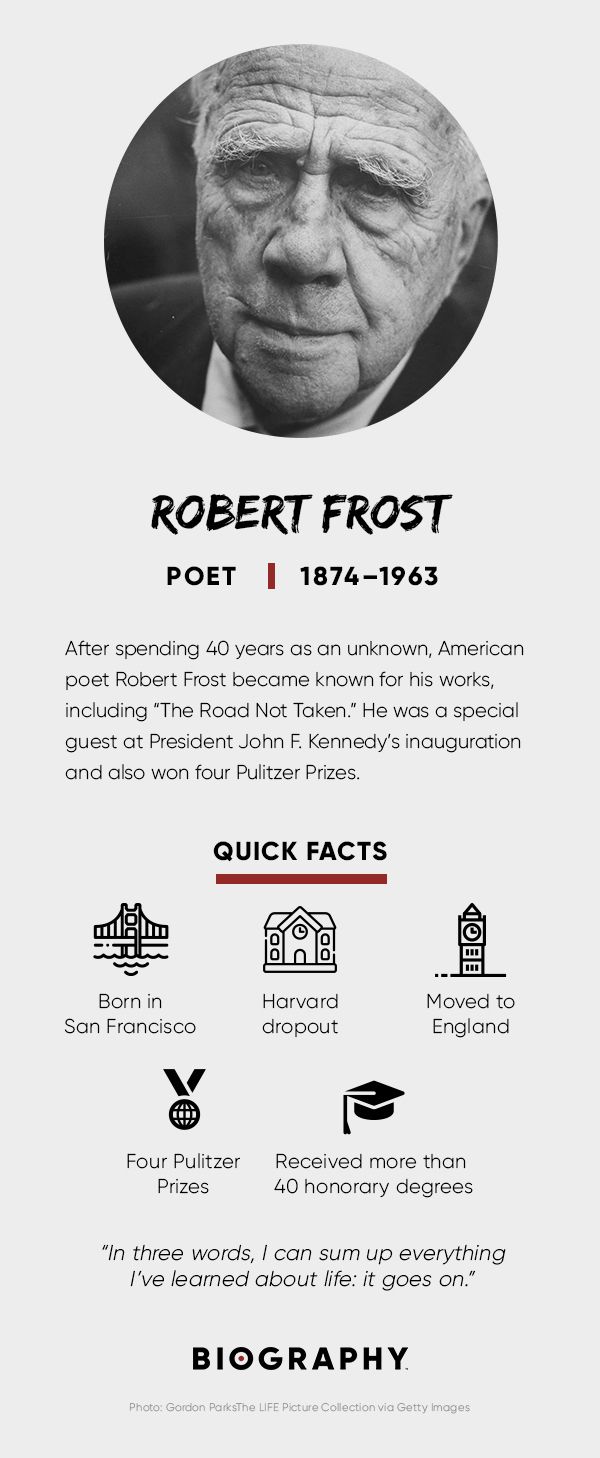
Early Poetry
In 1894, Frost had his first poem, "My Butterfly: an Elegy," published in The Independent , a weekly literary journal based in New York City .
Two poems, "The Tuft of Flowers" and "The Trial by Existence," were published in 1906. He could not find any publishers who were willing to underwrite his other poems.
In 1912, Frost and Elinor decided to sell the farm in New Hampshire and move the family to England, where they hoped there would be more publishers willing to take a chance on new poets.
Within just a few months, Frost, now 38, found a publisher who would print his first book of poems, A Boy’s Will , followed by North of Boston a year later.
It was at this time that Frost met fellow poets Ezra Pound and Edward Thomas, two men who would affect his life in significant ways. Pound and Thomas were the first to review his work in a favorable light, as well as provide significant encouragement. Frost credited Thomas's long walks over the English landscape as the inspiration for one of his most famous poems, "The Road Not Taken."
Apparently, Thomas's indecision and regret regarding what paths to take inspired Frost's work. The time Frost spent in England was one of the most significant periods in his life, but it was short-lived. Shortly after World War I broke out in August 1914, Frost and Elinor were forced to return to America.
Public Recognition for Frost’s Poetry
When Frost arrived back in America, his reputation had preceded him, and he was well-received by the literary world. His new publisher, Henry Holt, who would remain with him for the rest of his life, had purchased all of the copies of North of Boston . In 1916, he published Frost's Mountain Interval , a collection of other works that he created while in England, including a tribute to Thomas.
Journals such as the Atlantic Monthly , who had turned Frost down when he submitted work earlier, now came calling. Frost famously sent the Atlantic the same poems that they had rejected before his stay in England.
In 1915, Frost and Elinor settled down on a farm that they purchased in Franconia, New Hampshire. There, Frost began a long career as a teacher at several colleges, reciting poetry to eager crowds and writing all the while.
He taught at Dartmouth and the University of Michigan at various times, but his most significant association was with Amherst College , where he taught steadily during the period from 1916 until his wife’s death in 1938. The main library is now named in his honor.
For a period of more than 40 years beginning in 1921, Frost also spent almost every summer and fall at Middlebury College , teaching English on its campus in Ripton, Vermont.
In the late 1950s, Frost, along with Ernest Hemingway and T. S. Eliot , championed the release of his old acquaintance Ezra Pound, who was being held in a federal mental hospital for treason due to his involvement with fascists in Italy during World War II . Pound was released in 1958, after the indictments were dropped.
Famous Poems
Some of Frost’s most well-known poems include:
- “The Road Not Taken”
- “Fire and Ice”
- “Mending Wall”
- “Home Burial”
- “The Death of the Hired Man”
- “Stopping By Woods on a Snowy Evening”
- “Acquainted with the Night”
- “Nothing Gold Can Stay”
Pulitzer Prizes and Awards
During his lifetime, Frost received more than 40 honorary degrees.
In 1924, Frost was awarded his first of four Pulitzer Prizes, for his book New Hampshire . He would subsequently win Pulitzers for Collected Poems (1931), A Further Range (1937) and A Witness Tree (1943).
In 1960, Congress awarded Frost the Congressional Gold Medal.
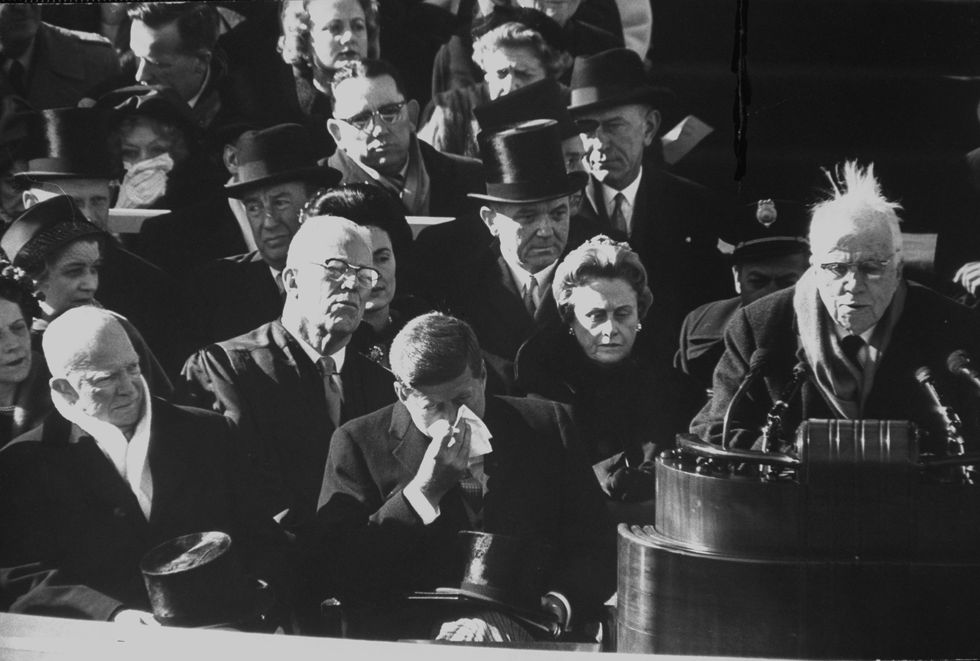
President John F. Kennedy’s Inauguration
At the age of 86, Frost was honored when asked to write and recite a poem for President John F. Kennedy's 1961 inauguration. His sight now failing, he was not able to see the words in the sunlight and substituted the reading of one of his poems, "The Gift Outright," which he had committed to memory.
Soviet Union Tour
In 1962, Frost visited the Soviet Union on a goodwill tour. However, when he accidentally misrepresented a statement made by Soviet Premier Nikita Khrushchev following their meeting, he unwittingly undid much of the good intended by his visit.
On January 29, 1963, Frost died from complications related to prostate surgery. He was survived by two of his daughters, Lesley and Irma. His ashes are interred in a family plot in Bennington, Vermont.
QUICK FACTS
- Name: Robert Lee Frost
- Birth Year: 1874
- Birth date: March 26, 1874
- Birth State: California
- Birth City: San Francisco
- Birth Country: United States
- Gender: Male
- Best Known For: Robert Frost was an American poet who depicted realistic New England life through language and situations familiar to the common man. He won four Pulitzer Prizes for his work and spoke at John F. Kennedy's 1961 inauguration.
- Fiction and Poetry
- Astrological Sign: Aries
- Harvard University
- Lawrence High School
- Dartmouth College
- Death Year: 1963
- Death date: January 29, 1963
- Death State: Massachusetts
- Death City: Boston
- Death Country: United States
We strive for accuracy and fairness.If you see something that doesn't look right, contact us !
CITATION INFORMATION
- Article Title: Robert Frost Biography
- Author: Biography.com Editors
- Website Name: The Biography.com website
- Url: https://www.biography.com/authors-writers/robert-frost
- Access Date:
- Publisher: A&E; Television Networks
- Last Updated: December 1, 2021
- Original Published Date: April 2, 2014
- The ear does it. The ear is the only true writer and the only true reader.
- I would have written of me on my stone: I had a lover's quarrel with the world.

Civil Rights Activists

Ethel Kennedy
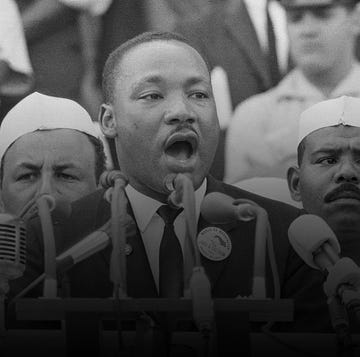
MLK Almost Didn’t Say “I Have a Dream”

Huey P. Newton
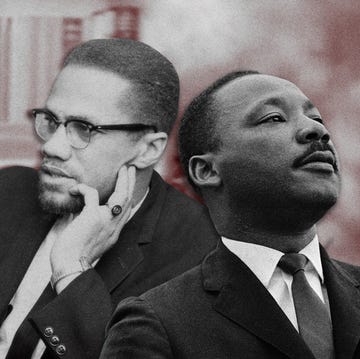
Martin Luther King Jr. Didn’t Criticize Malcolm X

5 Crowning Achievements of Maya Angelou
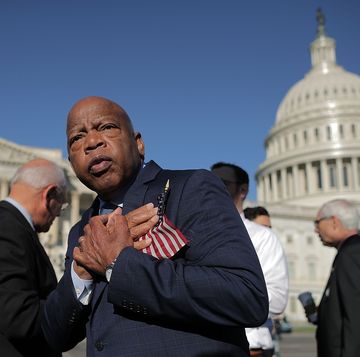
30 Civil Rights Leaders of the Past and Present
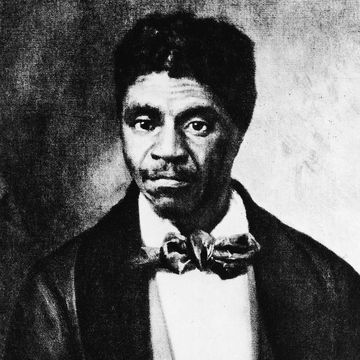
Benjamin Banneker
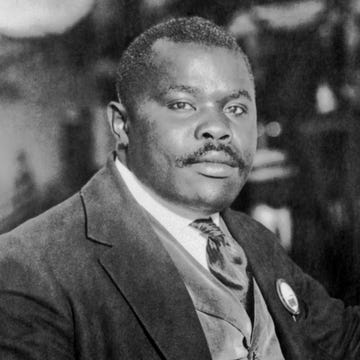
Marcus Garvey
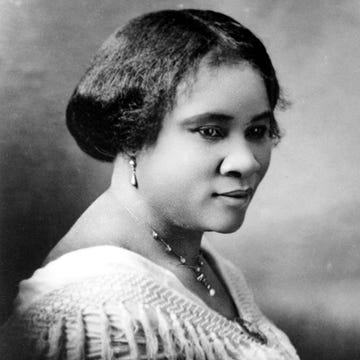
Madam C.J. Walker
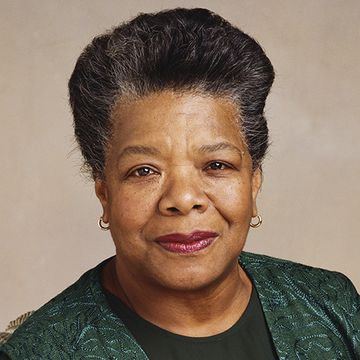
Maya Angelou

Martin Luther King Jr.
- National Poetry Month
- Materials for Teachers
- Literary Seminars
- American Poets Magazine
Main navigation
- Academy of American Poets
User account menu

Search more than 3,000 biographies of contemporary and classic poets.
Page submenu block
- literary seminars
- materials for teachers
- poetry near you
Robert Frost
Robert Frost was born on March 26, 1874, in San Francisco, where his father, William Prescott Frost, Jr., and his mother, Isabelle Moodie, had moved from Pennsylvania shortly after marrying. After the death of his father from tuberculosis when Frost was eleven years old, he moved with his mother and sister, Jeanie, who was two years younger, to Lawrence, Massachusetts. He became interested in reading and writing poetry during his high school years in Lawrence, enrolled at Dartmouth College in Hanover, New Hampshire in 1892 and, later, at Harvard University, though he never earned a formal degree.
Frost drifted through a string of occupations after leaving school, working as a teacher, cobbler, and editor of the Lawrence Sentinel . His first published poem, “My Butterfly,” appeared on November 8, 1894 in the New York newspaper The Independent .
In 1895, Frost married Elinor Miriam White, with whom he’d shared valedictorian honors in high school, and who was a major inspiration for his poetry until her death in 1938. The couple moved to England in 1912, after they tried and failed at farming in New Hampshire. It was abroad where Frost met and was influenced by such contemporary British poets as Edward Thomas , Rupert Brooke , and Robert Graves . While in England, Frost also established a friendship with the poet Ezra Pound , who helped to promote and publish his work.
By the time Frost returned to the United States in 1915, he had published two full-length collections, A Boy’s Will (Henry Holt and Company, 1913) and North of Boston (Henry Holt and Company, 1914), thereby establishing his reputation. By the 1920s, he was the most celebrated poets in America, and with each new book—including New Hampshire (Henry Holt and Company, 1923), A Further Range (Henry Holt and Company, 1936), Steeple Bush (Henry Holt and Company, 1947), and In the Clearing (Holt Rinehart & Winston, 1962)—his fame and honors, including four Pulitzer Prizes, increased. Frost served as a consultant in poetry to the Library of Congress from 1958–59. In 1962, he was presented the Congressional Gold Medal.
Though Frost’s work is principally associated with the life and landscape of New England—and, though he was a poet of traditional verse forms and metrics who remained steadfastly aloof from the poetic movements and fashions of his time—Frost is anything but merely a regional poet. The author of searching, and often dark, meditations on universal themes, he is a quintessentially modern poet in his adherence to language as it is actually spoken, in the psychological complexity of his portraits, and in the degree to which his work is infused with layers of ambiguity and irony.
In a 1970 review of The Poetry of Robert Frost , the poet Daniel Hoffman describes Frost’s early work as “the Puritan ethic turned astonishingly lyrical and enabled to say out loud the sources of its own delight in the world,” and comments on Frost’s career as the “American Bard”: “He became a national celebrity, our nearly official poet laureate, and a great performer in the tradition of that earlier master of the literary vernacular, Mark Twain.”
President John F. Kennedy, at whose inauguration Frost delivered a poem, said of the poet, “He has bequeathed his nation a body of imperishable verse from which Americans will forever gain joy and understanding.” And famously, “He saw poetry as the means of saving power from itself. When power leads man towards arrogance, poetry reminds him of his limitations. When power narrows the areas of man’s concern, poetry reminds him of the richness and diversity of his existence. When power corrupts, poetry cleanses.”
Robert Frost lived and taught for many years in Massachusetts and Vermont, and died in Boston on January 29, 1963.
Related Poets
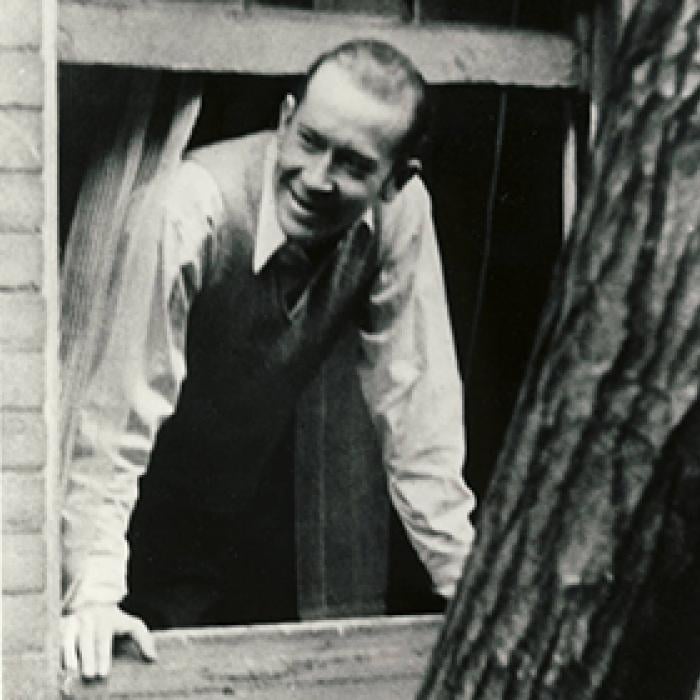
E. E. Cummings
Edward Estlin Cummings is known for his radical experimentation with form, punctuation, spelling, and syntax; he abandoned traditional techniques and structures to create a new, highly idiosyncratic means of poetic expression.
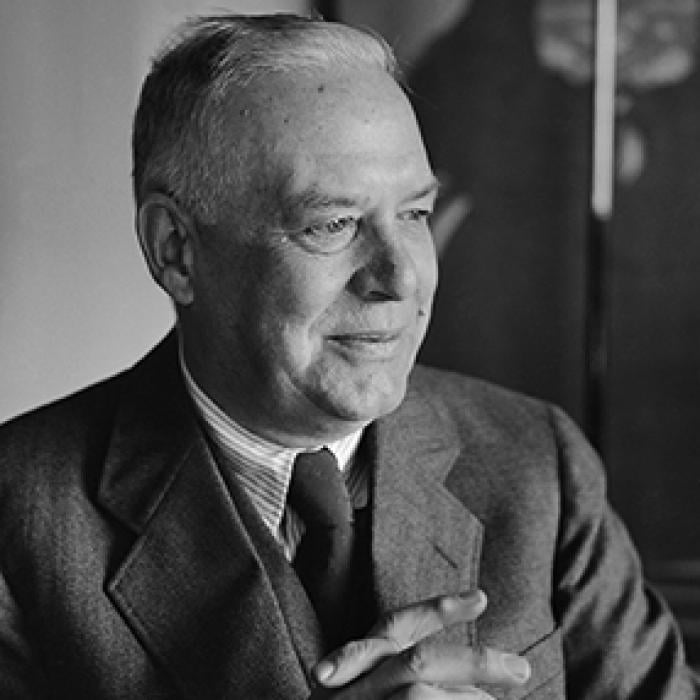
Wallace Stevens
Wallace Stevens was born in Reading, Pennsylvania, on October 2, 1879. He attended Harvard University as an undergraduate from 1897 to 1900.
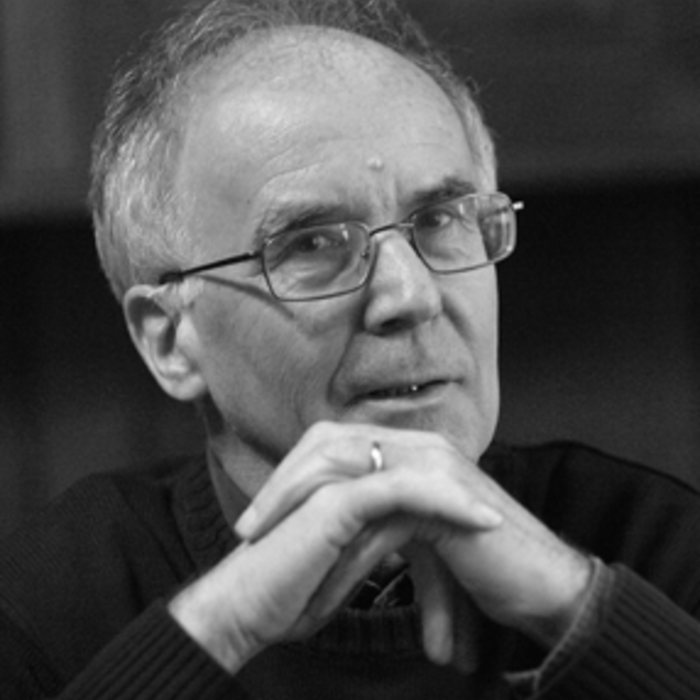

Tomaž Šalamun
Tomaž Šalamun was born on July 4, 1941, in Zagreb, Croatia, and grew up in Koper, Slovenia.
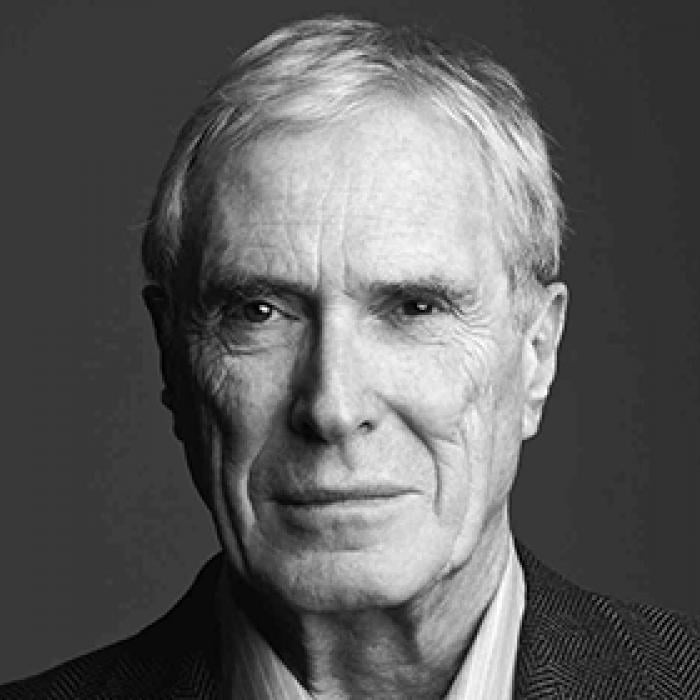
Mark Strand
Mark Strand was born on Canada’s Prince Edward Island on April 11, 1934.
William Saphier
William Saphier was a Romanian-born poet and painter who served as associate editor for Others , a monthly modernist magazine he coedited with Alfred Kreymborg.
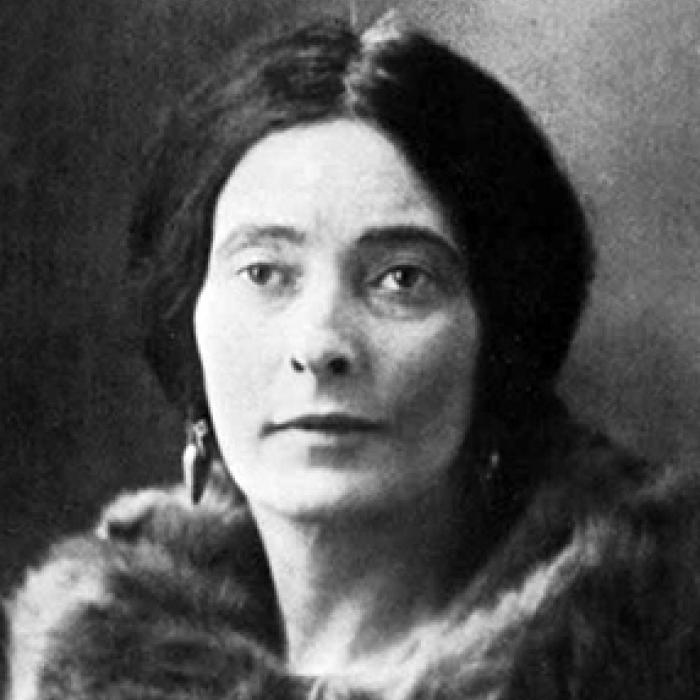
Born in London in 1882, Mina Loy has been labelled as a Futurist, Dadaist, Surrealist, feminist, conceptualist, modernist, and post-modernist. Known for both her poetry and visual art, she died in Colorado in 1966.
Newsletter Sign Up
- Academy of American Poets Newsletter
- Academy of American Poets Educator Newsletter
- Teach This Poem
.png)
Life and Works of Robert Frost
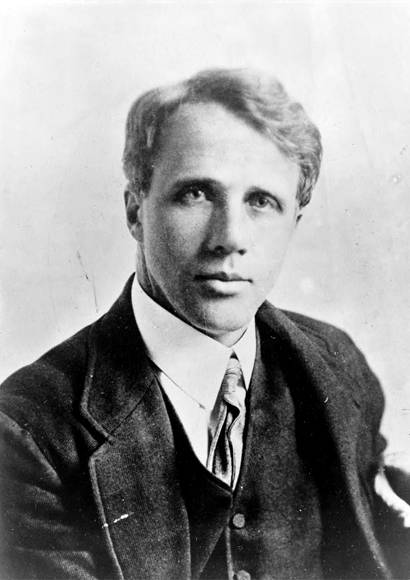
The Risk of Spirit: An Artist's Life
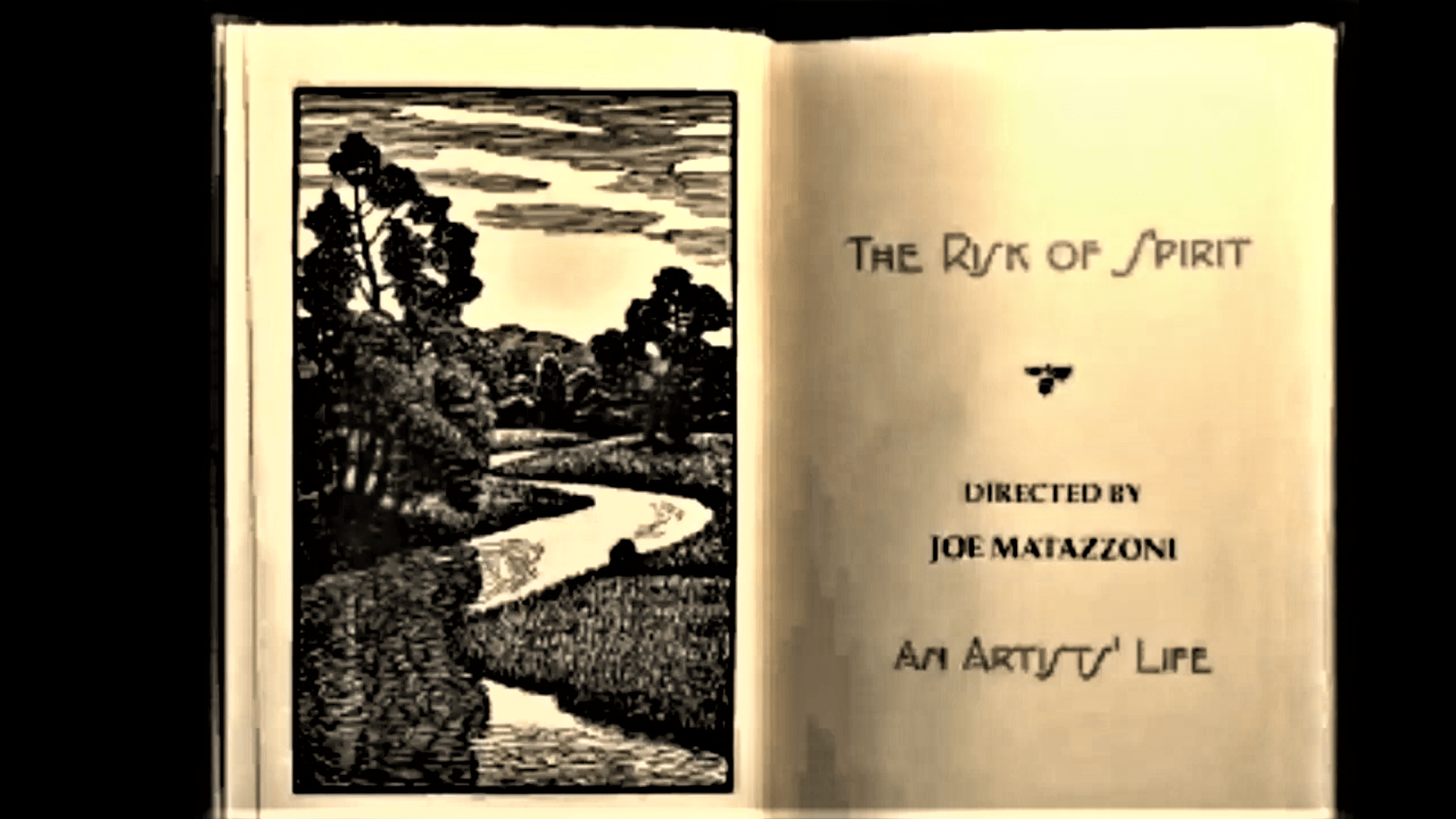
Video can’t be displayed
This video is not available.
.jpeg)
Works by Frost
Books of poetry.
.jpeg)
Frost in His Own Words
Interviews and first-hand accounts.

Biographies
We use cookies to enable essential functionality on our website, and analyze website traffic. By clicking Accept you consent to our use of cookies. Read about how we use cookies.
We use cookies to enable essential functionality on our website, and analyze website traffic. Read about how we use cookies .
These cookies are strictly necessary to provide you with services available through our websites. You cannot refuse these cookies without impacting how our websites function. You can block or delete them by changing your browser settings, as described under the heading "Managing cookies" in the Privacy and Cookies Policy .
These cookies collect information that is used in aggregate form to help us understand how our websites are being used or how effective our marketing campaigns are.
- Humanities ›
- Literature ›
- Favorite Poems & Poets ›
Biography of Robert Frost
America's Farmer/Philosopher Poet
- Favorite Poems & Poets
- Poetic Forms
- Best Sellers
- Classic Literature
- Plays & Drama
- Shakespeare
- Short Stories
- Children's Books
- B.A., English and American Literature, University of California at Santa Barbara
- B.A., English, Columbia College
Robert Frost — even the sound of his name is folksy, rural: simple, New England, white farmhouse, red barn, stone walls. And that’s our vision of him, thin white hair blowing at JFK’s inauguration, reciting his poem “The Gift Outright.” (The weather was too blustery and frigid for him to read “Dedication,” which he had written specifically for the event, so he simply performed the only poem he had memorized. It was oddly fitting.) As usual, there’s some truth in the myth — and a lot of back story that makes Frost much more interesting — more poet, less icon Americana.
Early Years
Robert Lee Frost was born March 26, 1874 in San Francisco to Isabelle Moodie and William Prescott Frost, Jr. The Civil War had ended nine years previously, Walt Whitman was 55. Frost had deep US roots: his father was a descendant of a Devonshire Frost who sailed to New Hampshire in 1634. William Frost had been a teacher and then a journalist, was known as a drinker, a gambler and a harsh disciplinarian. He also dabbled in politics, for as long as his health allowed. He died of tuberculosis in 1885, when his son was 11.
Youth and College Years
After the death of his father, Robert, his mother and sister moved from California to eastern Massachusetts near his paternal grandparents. His mother joined the Swedenborgian church and had him baptized in it, but Frost left it as an adult. He grew up as a city boy and attended Dartmouth College in 1892, for just less than a semester. He went back home to teach and work at various jobs including factory work and newspaper delivery.
First Publication and Marriage
In 1894 Frost sold his first poem, “My Butterfly,” to The New York Independent for $15. It begins: “Thine emulous fond flowers are dead, too, / And the daft sun-assaulter, he / That frighted thee so oft, is fled or dead.” On the strength of this accomplishment, he asked Elinor Miriam White, his high school co-valedictorian, to marry him: she refused. She wanted to finish school before they married. Frost was sure that there was another man and made an excursion to the Great Dismal Swamp in Virginia. He came back later that year and asked Elinor again; this time she accepted. They married in December 1895.
Farming, Expatriating
The newlyweds taught school together until 1897, when Frost entered Harvard for two years. He did well, but left school to return home when his wife was expecting a second child. He never returned to college, never earned a degree. His grandfather bought a farm for the family in Derry, New Hampshire (you can still visit this farm). Frost spent nine years there, farming and writing — the poultry farming was not successful but the writing drove him on, and back to teaching for a couple more years. In 1912, the Frost gave up the farm, sailed to Glasgow, and later settled in Beaconsfield, outside London.
Success in England
Frost’s efforts to establish himself in England were immediately successful. In 1913 he published his first book, A Boy’s Will , followed a year later by North of Boston . It was in England that he met such poets as Rupert Brooke, T.E. Hulme and Robert Graves, and established his lifelong friendship with Ezra Pound, who helped to promote and publish his work. Pound was the first American to write a (favorable) review of Frost’s work. In England Frost also met Edward Thomas, a member of the group known as the Dymock poets; it was walks with Thomas that led to Frost’s beloved but “tricky” poem, “The Road Not Taken.”
The Most Celebrated Poet in North America
Frost returned to the U.S. in 1915 and, by the 1920s, he was the most celebrated poet in North America, winning four Pulitzer Prizes (still a record). He lived on a farm in Franconia, New Hampshire, and from there carried on a long career writing, teaching and lecturing. From 1916 to 1938, he taught at Amherst College, and from 1921 to 1963 he spent his summers teaching at the Bread Loaf Writer’s Conference at Middlebury College, which he helped found. Middlebury still owns and maintains his farm as a National Historic site: it is now a museum and poetry conference center.
Upon his death in Boston on January 29, 1963, Robert Frost was buried in the Old Bennington Cemetery, in Bennington, Vermont. He said, “I don’t go to church, but I look in the window.” It does say something about one’s beliefs to be buried behind a church, although the gravestone faces in the opposite direction. Frost was a man famous for contradictions, known as a cranky and egocentric personality – he once lit a wastebasket on fire on stage when the poet before him went on too long. His gravestone of Barre granite with hand-carved laurel leaves is inscribed, “I had a lover’s quarrel with the world
Frost in the Poetry Sphere
Even though he was first discovered in England and extolled by the archmodernist Ezra Pound, Robert Frost’s reputation as a poet has been that of the most conservative, traditional, formal verse-maker. This may be changing: Paul Muldoon claims Frost as “the greatest American poet of the 20th century,” and the New York Times has tried to resuscitate him as a proto-experimentalist: “ Frost on the Edge ,” by David Orr, February 4, 2007 in the Sunday Book Review.
No matter. Frost is secure as our farmer/philosopher poet.
- Frost was actually born in San Francisco.
- He lived in California till he was 11 and then moved East — he grew up in cities in Massachusetts.
- Far from a hardscrabble farming apprenticeship, Frost attended Dartmouth and then Harvard. His grandfather bought him a farm when he was in his early 20s.
- When his attempt at chicken farming failed, he served a stint teaching at a private school and then he and his family moved to England.
- It was while he was in Europe that he was discovered by the US expat and Impresario of Modernism, Ezra Pound, who published him in Poetry .
“Home is the place where, when you have to go there, They have to take you in....” --“The Death of the Hired Man”
“Something there is that doesn’t love a wall....” --“ Mending Wall ”
“Some say the world will end in fire, Some say in ice.... --“ Fire and Ice”
A Girl’s Garden
Robert Frost (from Mountain Interval , 1920)
A neighbor of mine in the village Likes to tell how one spring When she was a girl on the farm, she did A childlike thing.
One day she asked her father To give her a garden plot To plant and tend and reap herself, And he said, “Why not?”
In casting about for a corner He thought of an idle bit Of walled-off ground where a shop had stood, And he said, “Just it.”
And he said, “That ought to make you An ideal one-girl farm, And give you a chance to put some strength On your slim-jim arm.”
It was not enough of a garden, Her father said, to plough; So she had to work it all by hand, But she don’t mind now.
She wheeled the dung in the wheelbarrow Along a stretch of road; But she always ran away and left Her not-nice load.
And hid from anyone passing. And then she begged the seed. She says she thinks she planted one Of all things but weed.
A hill each of potatoes, Radishes, lettuce, peas, Tomatoes, beets, beans, pumpkins, corn, And even fruit trees
And yes, she has long mistrusted That a cider apple tree In bearing there to-day is hers, Or at least may be.
Her crop was a miscellany When all was said and done, A little bit of everything, A great deal of none.
Now when she sees in the village How village things go, Just when it seems to come in right, She says, “I know!
It’s as when I was a farmer——” Oh, never by way of advice! And she never sins by telling the tale To the same person twice.
- A Guide to Robert Frost's "The Road Not Taken"
- 10 Classic Poems for Halloween
- 10 Classic Poems on Gardens and Gardening
- Robert Frost's 'Acquainted With the Night'
- Understanding 'The Pasture' by Robert Frost
- Presidential Inauguration Poems
- Poets Laureate of the U.S.A.
- William Wordsworth
- Reading Notes on Robert Frost’s Poem “Nothing Gold Can Stay”
- A Classic Collection of Bird Poems
- 18 Classic Poems of the Christmas Season
- A Collection of Classic Love Poetry for Your Sweetheart
- 7 Classic Poems for Fathers
- 41 Classic and New Poems to Keep You Warm in Winter
- Biography of Elizabeth Barrett Browning, Poet and Activist
- 14 Classic Poems Everyone Should Know
